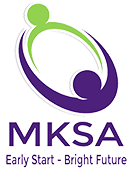Contact your local school district CPSE Chairperson or Director of Special Education.
FAQ Category: PRESCHOOL SERVICES
How will my child get to special education programs and services?
When the CPSE is planning programs and/or services for your child, they must also consider your child’s transportation needs, including the need for specialized transportation. If recommended by the CPSE, transportation will be provided by the county — once daily from the home or another child care location to the special service or program, and returning once daily from the special service or program to the home or other child care location — up to 50 miles from the child care location. Parents may be reimbursed for transporting their own child if the CPSE recommends transportation. Transportation will not be provided at public expense if the CPSE recommends special education itinerant teacher services or related services in the child’s home or another child care setting which the parent has arranged.
What programs or services will my child receive?
If approved by the school district, arrangements will be made for your eligible child to receive one or more of the following special education programs and/or services recommended by the CPSE including, but not limited to:
Speech Therapy (ST)
Occupational Therapy (OT)
Physical Therapy (PT)
Assistive technology
Parent education
Counseling
Special Education Programs:
Special Education Itinerant Teacher (SEIT) – a special education teacher works with a child in a setting recommended by the CPSE.
Special Class in an Integrated Setting (SC/IS) – a class with preschool students with and without disabilities.
Special Class (SC) – a class with only children with disabilities.
What is an Individualized Education Program (IEP)?
If your child is an eligible preschool student with a disability, you and the other CPSE members will write an Individualized Education Program (IEP) for your child that will list the recommended services to be provided, how often, and for how long. The CPSE must consider how to provide the services in the Least Restrictive Environment (LRE), where your child can learn close to your home with other children of the same age who do not have disabilities.
How will my child receive special education programs and services?
If your child has a disability that may be affecting his or her learning, the CPSE will find your child to be an eligible “preschool student with a disability.” The CPSE will also recommend the program or services to meet your child’s individual needs and where they will be provided.
How does the evaluation process work?
When your child is referred to the CPSE (your local school district), you will be given a list of agencies approved by the State Education Department to provide preschool special education evaluations. You will be asked to select one of the approved evaluators, then sign a consent form for your child to be evaluated at no cost to you or your family. A copy of the evaluation report, including a summary of the evaluation, will be provided to you and to other CPSE members. You will be asked to meet with them to discuss the evaluation results.
How can I get my child referred to the Committee on Preschool Special Education (CPSE)?
If your child received early intervention services as an infant or toddler up to age three, and may still need special education, your service coordinator will assist you with transition planning and making a referral to the Committee on Preschool Special Education (CPSE) at your local school district.
If your preschool-age child (3-5 years old) did not receive early intervention services, but has some delays or lags in development such as difficulty in talking, moving around, thinking, or learning or is facing physical or behavioral challenges, a parent or guardian may make a referral to the chairperson of your school district’s Committee on Preschool Special Education (CPSE) who will assist you in completing the referral process.
What is Preschool Special Education?
The New York State Education Department (SED), Office of Special Education oversees a statewide preschool special education program with school districts, municipalities, approved providers and parents. Evaluations and specially planned individual or group instructional services or programs are provided to eligible children who have a disability that affects their learning. Funding for these special education programs and services is provided by municipalities and the State.
